#nodejs express
Explore tagged Tumblr posts
Text
youtube
#youtube#video#codeonedigest#microservices#aws#microservice#docker#awscloud#nodejs module#nodejs#nodejs express#node js#node js training#node js express#node js development company#node js development services#app runner#aws app runner#docker image#docker container#docker tutorial#docker course
0 notes
Text
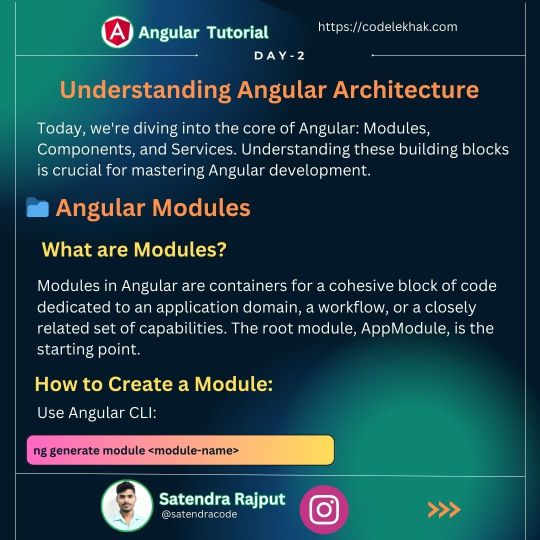
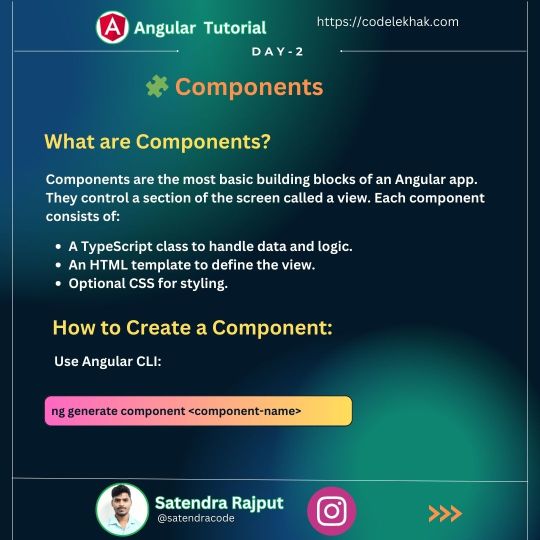
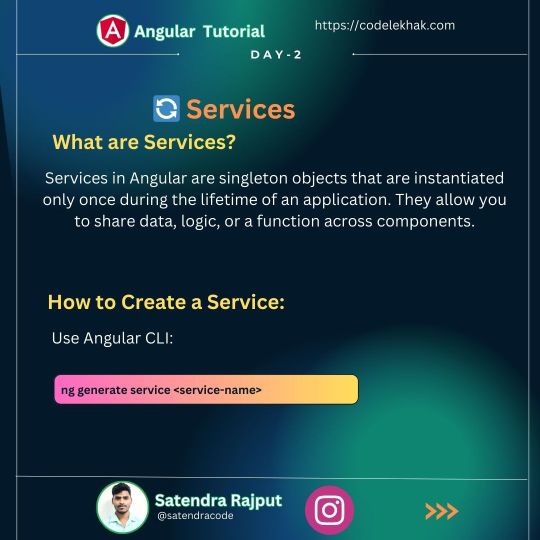
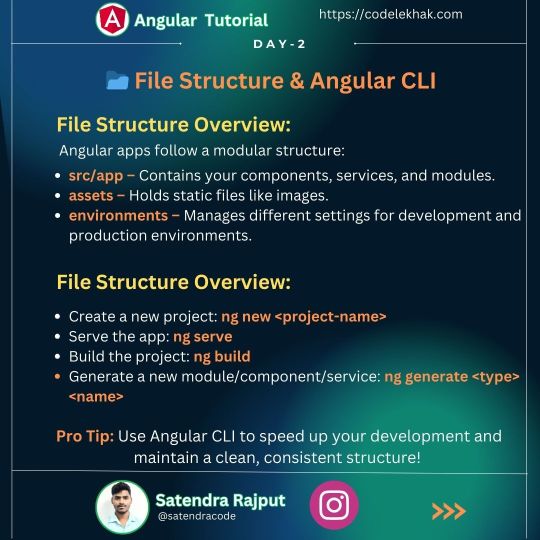

🚀 Day 2: Understanding Angular Architecture 🛠️
Today, we're diving into the core of Angular: Modules, Components, and Services. Understanding these building blocks is crucial for mastering Angular development.
#mongo#mongoose#node.js#express#node#nodejs#angular#css animation examples#cs submission#css3#mean stack#mean stack development company#html5 css3#html5#html5 game#javascript#html css#htmlcoding#html#coding#programming
0 notes
Text
0 notes
Text

#software development#teamagami#startups#nodejs#javascript#vanillajs#app development#express#axios#software devlopment company
0 notes
Text
Create WebPage Scrapper Using Node js and Express
Creating a web scraper using Node.js and Express allows developers to extract data from websites efficiently. In this tutorial, we’ll explore the development process of a web scraper using Node.js and Express, enabling users to retrieve specific data from web pages.
0 notes
Text
What is Express.js? A Comprehensive Guide to Beginners

Let’s start with web development.
When we talk about web development, we are basically essentially talking about the front-end and back-end (also referred to as server-side). Express is a backend development Nodejs framework.
What is a Nodejs Framework?
This section is for those who are not familiar with frameworks. If you already know what a framework is, please feel free to skip ahead.
Writing an application from scratch is time-consuming and tedious, especially in today’s fast-paced world, and initial setup may involve a lot of boilerplate code, such as setting up ports and defining route handlers; frameworks help to save time and effort by providing a pre-built set of tools and libraries that can be used to quickly and easily create a web application. This can free up developers to focus on the things that matter most — writing logic and advanced functionalities.
What is Express js?
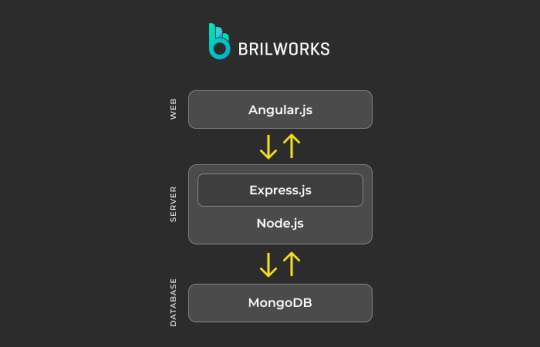
The image shows how a tech stack contributes to complete web development. For instance, when it comes to data storage, a Database (e.g., MongoDB) is required, and for writing the front end, various frameworks exist today, such as Angular.js.(in MEAN stack).
Similarly, you need to use a backend-specific language or framework for the backend. Some popular backend languages include Python, Java, JavaScript (Node.js), and PHP, while Django, Express.js, and Flask are some of the popular backend frameworks.
If you want to use JavaScript in the backend, you typically need to use the Node.js runtime environment. Node.js allows you to run JavaScript code outside of a web browser, which makes it possible to use JavaScript for both the front end and back end of a web application.
On top of Nodejs, several frameworks have been created, among which is Express. More precisely, it is a layer built around Node.js that significantly simplifies the process of working within the Node.js environment and reduces development complexity.
Express is an open-source web application framework for Node.js. It provides a robust set of features for building web and mobile applications, including routing, middleware, template engines, seamless database integration, and a wealth of features for developing advanced features and functions.
Note: In this article, when we refer to web applications with Express, we are explicitly referring to the development of “back-end services or APIs.”
Features of Express
1. An array of pre-built tools
The framework includes an array of tools for web applications, routing, and middleware for building and deploying large-scale, enterprise-ready applications.
2. Node package manager
It comes up with a Node package manager and a command-line interface(CLI), allowing you to create project structures, generate routes, controllers, and other components, as well as manage dependencies and configuration settings.
3. Middleware
Middleware in Express is used as snippets of code that intercept requests and responses, manage errors, and perform various other tasks, helping you to perform actions like validation, logging, and authentication in a reusable and modular way.
4. Routing
ExpressJS offers developers a straightforward routing system that simplifies the handling of HTTP requests. In addition, it allows you to define your own special paths and rules for these requests.
Applications of Expressjs
It is termed as a versatile framework that developers employ for constructing APIs, single page and real-time applications, microservices, proxy servers, CMSs, backend for mobile applications, authentication, authorization mechanisms, and many more services. Below is a list of the application you can build using Express js.
1. APIs for Single Page Application
Single-page applications (SPAs) are a popular type of web application that loads all of the content for the page in one go. This means that the user does not have to wait for the page to reload when they interact with it, which can provide a smoother and more responsive experience.
Some popular examples of SPAs include Gmail, Google Maps, and Spotify. These apps are able to provide a great user experience because they only need to load the content once, and then they can dynamically update the content based on the user’s actions. This makes for a very fluid and interactive experience. Express is used for developing back-end services, or APIs, for single-page applications to fetch data.
2. Real-time applications
Real-time applications are increasingly popular as they allow users to interact with each other in real time. Some popular examples of real-time applications include multiplayer games, chat apps, and collaboration tools. Express is used in developing real-time applications.
It helps you build the basic structure, like handling web pages and buttons, and when you want your website to instantly update without needing to refresh the page, Express.js and socket.io can work together.
Express.js can take care of the regular stuff your website needs, like showing pages and handling regular requests. While WebSockets enables real-time data exchange between the server and clients.
3. Streaming applications
Streaming applications are becoming increasingly popular as they allow users to watch movies, TV shows, and other content on demand. Some popular examples of streaming applications include Netflix, Hulu, and Disney+.
You can leverage Express in streaming applications for a variety of tasks, including handling requests, serving media files, developing authentication and authorization modules, implementing search and recommendations, and many more functionalities.
4. Fintech application
Some popular fintech applications that are built with Express.js include Robinhood, Coinbase, and PayPal. Leveraging the robust functionalities of Express.js, these applications efficiently manage intricate financial transactions.
5. APIs
APIs are software intermediaries that allow different systems to communicate with each other. They are widely utilized by different systems for integrating payment gateways, social media integrations, and e-commerce integrations. Brillworks has developed a suite of APIs and applications for the business consulting and media preservation industries, which includes critical functions such as company setup, visa services, corporate services, file management, customer portal, CMS portal, bulk upload, etc.
Read more: https://www.brilworks.com/blog/what-is-express-js-comprehensive-guide-to-beginners/
0 notes
Text
Mongoose npm for nodejs 2023
Mongoose is a widely-used Node.js library that provides a straightforward and elegant way to interact with MongoDB, a popular open-source NoSQL database. Developed to simplify database management and streamline interactions between applications and MongoDB, Mongoose offers an object modeling system that enables developers to define schemas, validate data, and perform CRUD (Create, Read, Update, Delete) operations with ease. Read More..
1 note
·
View note
Text
async_hooks: behind the scenes of Node.js http request context handling
Despite Node.js being single threaded, some libraries do help us to keep track of http request context. Do you know how do they do it? I tried to explain it with the help of a thought experiment here. I hope you find it informative. Happy coding :)
In a previous post, we discussed how Node.js is a single-threaded environment and still manages to serve multiple requests simultaneously: Node.js event loop: concurrent processing in a single-threaded environment. This is a good way to avoid the problems that come along with multi-threading like race conditions. But this extra peace of mind comes at a price. Now that you do not have a…

View On WordPress
0 notes
Text
youtube
#youtube#video#codeonedigest#microservices#microservice#nodejs tutorial#nodejs express#node js development company#node js#nodejs#node#node js training#node js express#node js development services#node js application#redis cache#redis#docker image#dockerhub#docker container#docker tutorial#docker course
0 notes
Video
youtube
Sequelize MySQL Node Express REST API | Babel | Devhubspot
1 note
·
View note
Text
1 note
·
View note
Text
Certainly! Let’s explore how to build a full-stack application using Node.js. In this comprehensive guide, we’ll cover the essential components and steps involved in creating a full-stack web application.
Building a Full-Stack Application with Node.js, Express, and MongoDB
1. Node.js: The Backbone of Our Application
Node.js is a runtime environment that allows us to run JavaScript on the server-side.
It’s built on Chrome’s V8 JavaScript engine and uses an event-driven, non-blocking I/O model, making it lightweight and efficient.
Node.js serves as the backbone of our application, providing the environment in which our server-side code will run.
2. Express.js: Simplifying Server-Side Development
Express.js is a minimal and flexible Node.js web application framework.
It provides a robust set of features for building web and mobile applications.
With Express.js, we can:
Set up middlewares to respond to HTTP requests.
Define routing rules.
Add additional features like template engines.
3. MongoDB: Storing Our Data
MongoDB is a document-oriented database program.
It uses JSON-like documents with optional schemas and is known for its flexibility and scalability.
We’ll use MongoDB to store our application’s data in an accessible and writable format.
Building Our Full-Stack Application: A Step-by-Step Guide
Setting Up the Environment:
Install Node.js:sudo apt install nodejs
Initialize a new Node.js project:mkdir myapp && cd myapp npm init -y
Install Express.js:npm install express
Creating the Server:
Create a basic Express server:const express = require('express'); const app = express(); const port = 3000; app.get('/', (req, res) => { res.send('Hello World!'); }); app.listen(port, () => { console.log(`Server running at http://localhost:${port}`); });
Defining Routes:
Define routes for different parts of our application:app.get('/user', (req, res) => { res.send('User Page'); });
Connecting to MongoDB:
Use Mongoose (a MongoDB object modeling tool) to connect to MongoDB and handle data storage.
Remember, this is just the beginning! Full-stack development involves frontend (client-side) work as well. You can use React, Angular, or other frontend libraries to build the user interface and connect it to your backend (Node.js and Express).
Feel free to explore more about each component and dive deeper into building your full-stack application! 😊 12
2 notes
·
View notes
Text
In 2024, NodeJS continues to be a powerhouse for web development, offering a range of frameworks that cater to various needs for efficient and scalable development. Exploring the top 10 NodeJS frameworks reveals cutting-edge solutions designed to streamline development processes, enhance performance, and support scalable applications. Frameworks like Express.js, known for its minimalistic and flexible approach, and NestJS, which offers a robust architecture for building enterprise-grade applications, stand out as essential tools for developers aiming to create high-performing web solutions.
Additionally, frameworks such as Koa.js, designed by the creators of Express, provide a more modern and modular approach to building web applications, while Next.js excels in server-rendered React applications for faster load times and improved SEO. These frameworks, along with others like Sails.js, Meteor, and Hapi, ensure that developers have the right tools to tackle any project, from simple APIs to complex, real-time web applications. With the right framework, NodeJS developers can create scalable and efficient web solutions that meet the demands of today's dynamic digital landscape.
#node js development company#hire node js developers usa#hire nodejs developers#nodejs development company in usa
2 notes
·
View notes
Text
Hire Node.js Developers vs Full-Stack Developers: What’s Better for You?

The success of your project depends on selecting the best developer for creating scalable and reliable web applications. Full-stack programming and Node.js have emerged as some of the most in-demand competencies for contemporary apps, particularly for tech companies trying to maintain their competitive edge.
However, how do you choose between hiring full-stack developers and Node.js developers? The main distinctions between the two positions will be discussed in this article, along with advice on how to choose the one that best suits your needs.
Understanding the Key Differences for Your Project Needs
What Is Node.js and Why Should You Hire Node.js Developers?
A robust runtime environment based on JavaScript, Node.js is used to create server-side applications that are scalable and quick to develop. It's particularly well-liked for developing backend systems that can manage many connections at once with great throughput. Hiring Nodejs developers means bringing in professionals with an emphasis on backend development using Node.js frameworks like Express.js, Koa.js, or Hapi.js and JavaScript.
The backend of your application, server-side logic, database interfaces, and API development are usually the main focusses of Node.js engineers. They are extremely adept at making sure server-side operations function properly, which is essential for tech firms that need web apps that are quick, effective, and scalable.
It would be wise to hire Node.js engineers if your project calls for a very effective backend that can manage heavy traffic or create real-time applications. They are especially well-suited for creating scalable services, real-time applications, and microservices, and they are excellent at creating systems with high concurrency.
What Is Full-Stack Development and Why Should You Hire Full-Stack Developers?
However, full-stack developers are multifaceted experts who manage an application's back-end (server-side) and front-end (UI/UX) components. A professional who can create and manage the complete application—from the user interface to the database and server-side logic—is what you get when you engage full-stack developers.
Programming languages, frameworks, and technologies that full-stack engineers are skilled in include JavaScript (for both front-end and back-end development), HTML, CSS, and front-end development frameworks like React or Angular, as well as back-end tools like Node.js, Express, and MongoDB.
Employ full-stack engineers who can handle both the front-end and back-end for tech organizations that need a developer who can see a project through from inception to conclusion. Teams that require a highly adaptable resource who can work on various application stack components and guarantee seamless front-end and back-end system interaction will find full-stack developers ideal.
Node.js Developers vs Full-Stack Developers: Which One Is Right for Your Project?
So, is it better to recruit full-stack engineers or Node.js developers? It mostly relies on the needs of your team and the size of your project:
If you require a developer with expertise in backend programming, scalable server-side application development, and managing large amounts of data and traffic, hire Nodejs developers. Microservices and real-time applications that require performance are best suited for Node.js.
If your project calls for a more comprehensive strategy, select full-stack engineers, who can manage both the front-end and back-end. For smaller teams or projects where you require a flexible developer who can move between the stack's layers as needed, full-stack developers are ideal.
Hiring full-stack developers to handle the front-end and integration and hiring backend developers to handle the server-side logic may be the best option. This is especially true if you are creating a complicated web application with several layers or features and you want experts for distinct project components.
Conclusion: Making the Right Choice for Your Needs
The complexity and scope of your project will determine whether you hire full-stack or Node.js developers. Hire Nodejs developers with extensive knowledge of server-side JavaScript for a highly specialized backend. Hiring full-stack engineers, on the other hand, will guarantee your application's flawless operation throughout if you demand a more comprehensive solution that incorporates both front-end and back-end capabilities.
Knowing the particular requirements of your project can help you make the best choice for tech businesses who are committed to creating scalable, reliable applications. Knowing these roles can help you make an informed choice for the future success of your application, regardless of whether you want to concentrate on backend development or require a flexible developer who can manage both ends of your project.
0 notes
Text
From Express to the latest performance boosters — here are the 15 Node.js libraries every backend dev should know. Which ones are in your stack?
#mobile app development#appdevelopment#app development#nodejs#nodejsdevelopers#nodejsapplications#node.js
0 notes